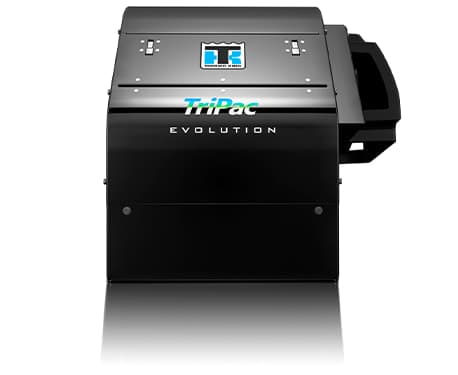The air conditioning compressor is a critical component in a Thermo King auxiliary power unit (APU). When this compressor fails, the APU will not be able to provide cooled air to the truck cab.
As an owner-operator or fleet technician, it’s important to understand potential issues that can cause the AC compressor to stop working in your Thermo King APU.
Thermo King APU AC Compressor Not Working – Fix

In this article, we’ll walk through the steps for diagnosing and repairing a non-functional APU AC compressor.
How an APU AC System Works?
Before diving into troubleshooting, let’s briefly review how the air conditioning system works in a Thermo King APU:
- The AC compressor is driven by the APU engine via a belt. The compressor pressurizes refrigerant gas.
- The pressurized refrigerant passes through the condenser, where it dissipates heat and condenses into a high-pressure liquid.
- The liquid refrigerant goes through an expansion valve, which causes the refrigerant pressure and temperature to drop.
- The low-pressure refrigerant enters the evaporator and absorbs heat from the air passing over the coils. This cooled air then circulates through the truck cab via blower fans.
- The refrigerant evaporates back into a gas in the evaporator and returns to the compressor inlet to repeat the cycle.
Proper operation relies on each of these components working correctly. If one fails, the system will not be able to provide cool air. Next, we’ll look at some of the most common issues that can cause the AC compressor to stop functioning.
How to Fix Thermo King APU AC Compressor Not Working?
-
Step 1 – Check for Basic Problems
Before assuming the AC compressor itself has failed, check for a few basic issues that can prevent the compressor from running:
- Check the APU engine operation – The AC compressor is driven by the engine via a belt. If the engine is not running, the compressor will not run. Verify the APU starts and runs normally.
- Inspect the compressor belt – If the belt is broken, loose, or slipping, this can prevent the compressor from turning. Inspect belt condition and tension. Tighten or replace the belt if needed.
- Check for electrical power to the APU – The AC system requires 12V DC power to operate. If the truck battery is dead or there are electrical issues with the APU wiring, power may not be reaching the AC system.
- Make sure refrigerant is present – Your APU may have a refrigerant pressure gauge or low refrigerant sensor. If the system is totally empty of refrigerant due to a leak, the compressor will not run properly.
- Check fuses and relays – Electrical issues can stop power from reaching the AC compressor clutch coil. Inspect the AC fuses and relay in the APU electrical box.
- Look for AC control issues – Problems with the thermostat or failure of the AC control board can prevent the compressor from engaging.
If you find any of these basic problems, address them before assuming the compressor itself has malfunctioned.
-
Step 2 – Diagnose the Compressor
If the engine and AC electrical system are working properly, next you’ll want to diagnose the compressor itself. Here are steps to determine if the compressor is faulty:
- Check for voltage at the compressor clutch – Use a multimeter to verify that 12VDC is present at the compressor clutch wire when the AC is switched on. If voltage is not present, there is an electrical issue stopping the clutch from engaging.
- Listen for sounds of operation – When powered, the compressor clutch should click as it engages. If you don’t hear this click, it could indicate a bad compressor clutch coil.
- Feel for clutch operation – With the AC on, reach under the belt guard and try to spin the clutch pulley by hand. If the clutch is engaging properly, it will not spin easily. If it spins freely, the clutch is not locked up to turn the compressor.
- Inspect refrigerant pressure – Attach AC gauges during operation. Low refrigerant pressure could indicate bad compressor valves. Higher than normal head pressure may signal a condenser problem.
- Check compressor oil level – If oil has leaked out, it could cause compressor failure. The oil carries away heat and keeps internal parts lubricated.
- Look for electrical shorts – Use a multimeter to check the compressor windings for shorts to ground. Short circuits can cause resistance or current flow issues.
- Do a visual inspection – Look for signs of damage like broken mounting feet, connections, or electrical terminals. Check for debris blocking airflow.
Use these tests to home in on the exact compressor failure. Refrigerant, electrical, and lubrication issues can all quickly damage AC compressors.
-
Step 3 – Repair or Replace the Compressor
Once you’ve diagnosed the issue, it’s time to get your APU’s AC system up and running again:
- Fix minor issues – If you find problems like low refrigerant, bad clutch coil, debris buildup, or a belt issue, make those repairs and try to operate the system again. The compressor may start working normally.
- Repair the compressor – For internal problems like bad valves or windings, compressor replacement is usually required. On some brands, the individual head unit can be replaced while retaining the compressor body.
- Install new compressor – For major damage or end-of-life compressors, replacing the entire unit is needed. Use OEM or aftermarket compressors made specifically for RV applications.
- Add compressor oil – Whether repairing or replacing the compressor, make sure to replenish the system oil to the proper level. Oil circulates with the refrigerant.
- Replace drier filter – Anytime the system is opened, replace the AC drier to remove moisture and contaminants. This prevents issues with the new compressor.
- Recharge refrigerant – After any repair, you’ll need a full system evacuation and recharge to factory specs using the correct refrigerant type.
Proper diagnosis of AC issues can save time and money compared to just replacing parts without determining the root cause. With a logical troubleshooting process, you can get your Thermo King APU back to keeping your cab cool in no time.
Preventative Maintenance for APU AC Systems
The best way to minimize APU air conditioner compressor issues is through regular preventative maintenance:
- Change cabin air filters – Clogged filters make the system work harder and can allow debris to reach the compressor.
- Wash condenser coils – Clean coils allow proper airflow and heat transfer for maximum efficiency.
- Check belt condition – Worn, cracked, or glazed belts should be replaced to maintain proper compressor operation.
- Check refrigerant charge yearly – Leakage over time can cause low refrigerant situations that damage the compressor.
- Do a visual inspection – Look for loose fittings and fasteners, damaged hoses, and potential sources of leaks.
- Verify electrical connections – Make sure all contacts are tight and free of corrosion. Check compressor wiring insulation.
- Listen for odd noises – Unusual compressor sounds can indicate internal issues before total failure occurs.
- Consider yearly AC service – AC pros can do a full inspection and address any small issues before they become big repairs.
Staying on top of AC service needs will help you avoid being stuck on the side of the highway with a non-functioning APU on a hot day!
Key Takeaways on Troubleshooting Thermo King APU AC Systems
Having an air conditioner compressor failure in your Thermo King aux power unit can be frustrating when you rely on it to cool your truck. By methodically diagnosing the issue, you can identify the true cause and best repair approach. Remember these tips:
- Start with basic electrical and belt checks before assuming the compressor itself has failed.
- Use clutch engagement, refrigerant pressures, oil levels, and voltage readings to diagnose compressor issues.
- Replace failed parts, repair if possible, or install a new compressor along with changing the drier and oil.
- Recharge the system properly with the factory-specified refrigerant and amount.
- Prevent problems in the future through regular AC system inspections and maintenance.
Knowing how to pinpoint AC system problems can get your APU back to keeping you cool and comfortable in no time. With a reliable compressor, you can take advantage of all the benefits of auxiliary air conditioning.
Also Check:
- Nest Thermostat Short Cycling AC
- AC Not Cooling Below 75 Degrees
- Signs Your AC Unit Needs Professional Maintenance
Conclusion:
Having a reliable air conditioning system in your Thermo King APU is essential for keeping cool and comfortable while resting in your truck’s cab. But when the AC compressor stops working, it can make your off-duty time miserable.
Following the systematic troubleshooting approach outlined in this article can help you get to the root of the problem.
With the proper repairs, preventative maintenance, and A/C recharging, you can get your auxiliary air back up and running to provide the air conditioning you need during hot weather.
Staying proactive with AC service for your APU will provide reliable operation when you need it most.



